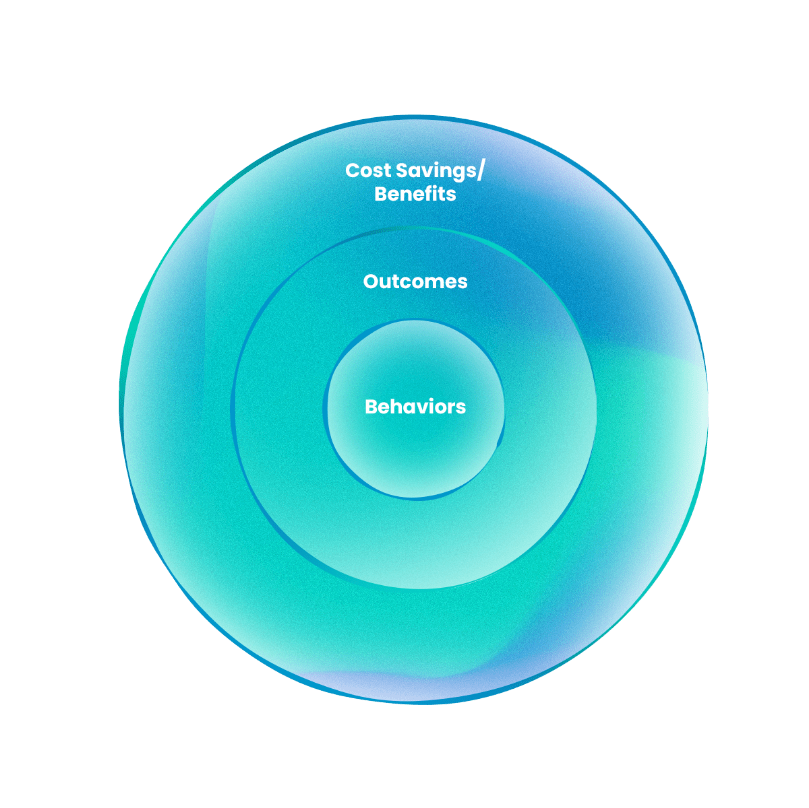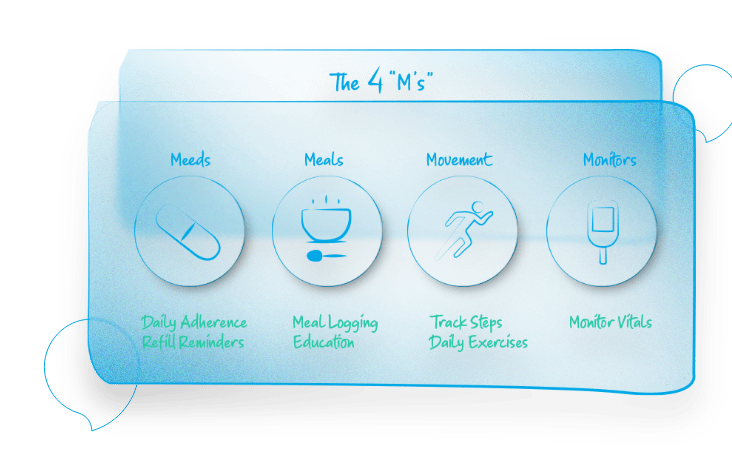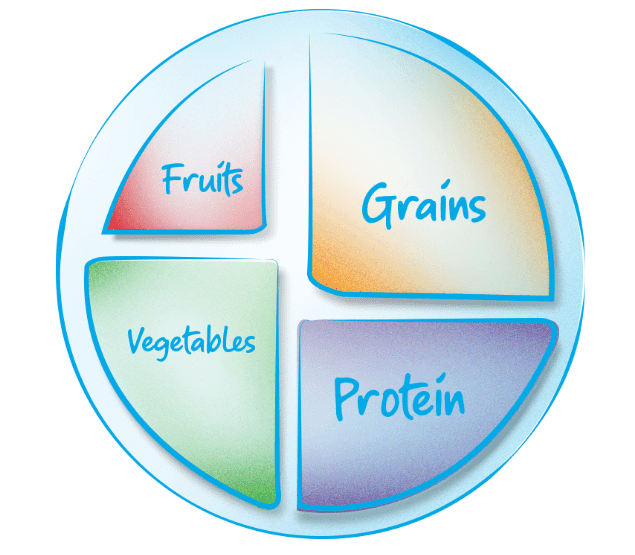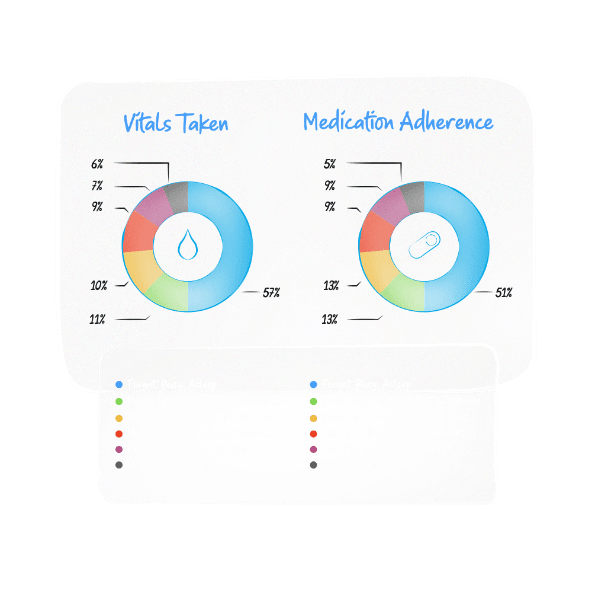BEHAVIOR DESIGN IN HEALTHCARE
After four years of researching ways to improve patient care, we noticed a very specific pattern in how providers interact with patients:
- 1 They offer a care plan
- 2 They prescribe medications
- 3 They treat healthcare emergencies
Then why are there so many healthcare emergencies?
Patient non-compliance – when a patient stops, or sometimes never even starts following a care plan.
Sticking to their care plan would:
- Minimize emergencies
- Give them a better quality of life
Sticking to their care plan would:
- patients don’t understand their care plan
- they feel overwhelmed by the constant barrage of advice they receive on how to best take care of themselves.
So what’s the missing piece in healthcare? Coaches.
Patients need someone who can help them navigate the confusion and become better educated about their health.
They need guidance on how to change their behavior and develop healthy new habits.
Our platform connects the dots by pairing patients with coaches, trained in behavior science principles, to guide patients through the process of building healthy habits and monitoring their health.
By providing a simple and accessible solution that narrows the patient’s focus to a few key behaviors, our AI is able to guide patients to a better quality of life.
Monitoring of blood sugar for 109 Kaiser Patients21276 blood sugar measurements are finished within 14 months
We observed that many patients had higher glucose values at the beginning of the program and at the beginning of the pandemic (- March and April 2020)
What is a great platform without
a great outcome and impact?
Our research shows that by changing just one patient behavior, in this case monitoring patient blood sugar readings, we can have a dramatic impact on patient health outcomes.
Patients that were monitored through our platform demonstrated better regulated blood sugar readings, with dramatic results seen in as little as one month after joining the program.
Better readings mean better patient health outcomes.
Vianova’s AI Platform has a huge impact on the patients’ Behavior and Habit formation.
Behaviors such as sleep, movement, and mood have an enormous impact on a patient’s daily life. Our platform educates patients about the importance of paying attention to core behaviors in order to achieve better health outcomes.
By offering tech tools focused specifically on behavior change, Vianova helps patients form new, healthy habits, including:
- Eating healthy meals at the right time
- Checking their vitals
- Taking their medications
- Adding movement to their day
Education Score and Health Confidence Score
Our focus is to empower patients to not only understand their chronic disease, but to also feel more confident in their own ability to improve their health outcomes.
We spent time surveying our patients to understand their knowledge about their disease (Education Score), as well as their confidence in their ability to take care of themselves (Health Confidence Score) to see if our work made a difference.
The results speak for themselves! Patients demonstrated: ! INCREASED DISEASE EDUCATION SCORE BY 22%; ! IMPROVED HEALTH CONFIDENCE SCORE BY 19%
At Vianova, we believe that Health Education matters. When our patients are educated and feel well informed about their health, their health outcomes naturally improve. By offering them actionable knowledge, we have seen great results, not only through improved results on both their Education Score and Health Confidence Score, but also demonstrated by an increased percentage of vitals within their target ranges.
• With Kaiser Permanente Medial, we have deployed our devices to 120+ patient device and achived the following:
• Reduced average blood sugar from 227 to 140 in three weeks • Increased disease education score by 22% • Improved Health Confidence Score by 19% • Expanding to Diabetes, CHF, HTN and COPD • Patients interact with “Rita” , 1 time per day for 5 minutes
Ripple Effects
Ripple effect- def.- an unintentional or indirect benefit or value
as a result of the intentional behavior we are implementing











Example: Behavior Centric Design Approach
The 4Ms
A Behavior-Centric Design Approach to Healthcare
At Vianova, we spent 4 years analyzing healthcare. After speaking to healthcare experts and patients across the country, analyzing treatment plans and outcome measures – we quickly realized that there are 4 core behaviors that have a massive impact on the entire continuum of care (wellbeing, prevention, and chronic disease management).
It’s all about behavior.
The biggest problem in healthcare is the cost. Healthcare is more expensive than ever, and reducing costs makes healthcare more accessible to everyone. In order to develop cost saving measures that do not take away from patients receiving the services they need, we need to focus on the essence of the healthcare problem – behavior. By changing 4 core behaviors, patients experience profound improvements including:
- Better health
- Better mood
- Fewer healthcare emergencies
What are the 4Ms
The 4Ms are 4 Core Behaviors that Vianova has found have a profound impact on a patient’s overall health and wellbeing. By guiding patients to focus on the 4Ms, patients can prioritize what will actually make a difference to their quality of life.
Medication Adherence
Many patients are not taking their medications at the prescribed time 50% of patient stop following their prescribed treatment plan within the first 30 days (Source: Chronic Condition in America: Price and Prevalence, July 2017, RAND Health Study, RAND Corporation
$289 Billion Impact because 50% chronic disease patients do not take medication as prescribed (references)
By simply encouraging patients to develop a Medication Adherence habit through Vianova’s Health Platform, our clients have seen a drop in patient emergencies.



Meals
Types of Meal Behaviors
- Meal Logging
- Intermittent Fasting
- Portion Sizes
Meals
Sitting is now the leading cause of death.
Sitting is a behavior, and as our sit time increases, our lack of mobility is correlated with an increased risk of developing a chronic disease.
Sit time and Screen time are also often correlated. When we chat on our devices, we stand still, stop moving, and pause whatever else we were doing.
How often do you use Instagram, TikTok, or WhatsApp while walking or moving?


Types of Movement Behaviors:
Walking more throughout the day Trying new types of exercises Pairing exercise with another activity
Monitoring
Vianova Clinician Survey Response After speaking to 150+ Physicians, we discovered that two of the most crucial data points to collect through remote patient monitoring programs are vitals, such as blood sugar, blood pressure, and blood oxygen, as well as medications
So why do patients resist monitoring themselves? Vianova conducted a survey of 454 patients asking why they do not check their vitals or take their medications
By simply guiding patients to change their behaviors around vitals and medications, our platform keeps patients on the right track.

HEALTHCARE
Clinician developed care plans focused on medication adherence, vital readings collection, and disease based education, along with coaches who work with patients to develop healthy habits.
EDUCATION
Our platform focuses on providing students with engaging, easy to learn content while they develop the habit of learning.
GIVE-TECH
We make it easy for nonprofits to engage their donor base through updates and fundraisers, while smoothing the way to spread the word
